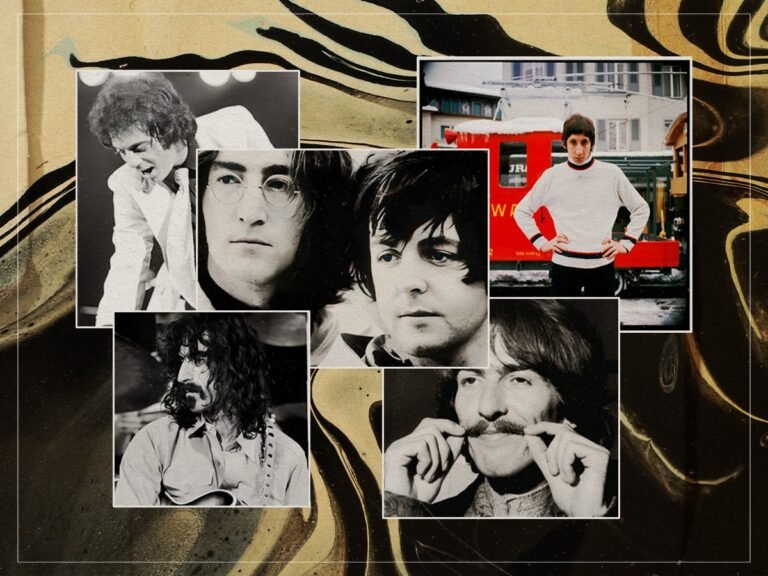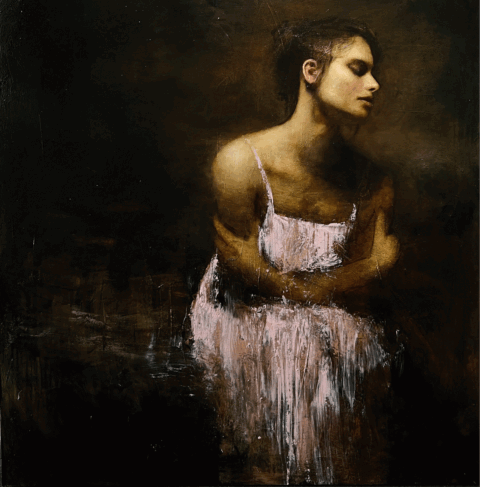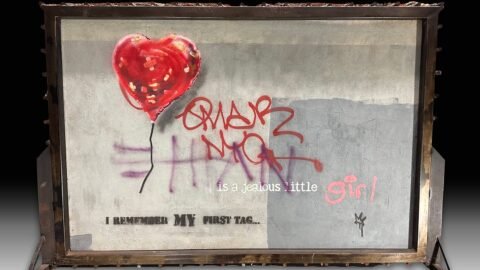‘I’m the Slime’ – Frank Zappa

There are a million reasons why people might want to keep some of their material in the vaults. Either some of the songs weren’t as memorable as they previously thought, or there’s the occasional moment where they may have given away a little too much of their personal lives in their songs. But for someone like Frank Zappa, the reason why ‘I’m the Slime’ wasn’t supposed to come out came from a case of a musical supervillain rearing his head a bit too much.
On the surface, this is the typical kind of Zappa-esque freakout track talking about the dangers of big business in the industry. Everyone plays their hearts out as usual and Zappa himself gives a great performance with that strange-as-hell lead vocal, but bringing in Tina Turner and the Ikettes to sing on the song was a living nightmare for Ike Turner when he found out that he wanted to get paid the same rate as the singers even though he was sitting on his ass.
When Zappa insisted that they all get the same wage as the average session musician, Ike couldn’t fathom the idea of one of his bandmates making more than him, saying that he thought the record was hot garbage and insisting that the backing vocals be scrubbed from the track altogether. While they appear on the record, they wouldn’t be credited on the sleeve, proving that there were different varieties of slime than the ones oozing out of everyone’s TV sets.
‘Pinball Wizard’ – The Who

Anyone creating a rock opera needs to make sure every single part of the record complements each other. The whole point is to tell one flowing narrative that blends one piece of the story to the next, and if something ends up disrupting the flow, it’s time to go back to the drawing board and start working with a different premise. Although Tommy is still seen as the template for how a rock opera should unfold, Pete Townshend admitted that ‘Pinball Wizard’ was the afterthought that no one wanted.
Because while the rest of the album is great, not every song is cut out to be a single. There needed to be at least a little bit of hit potential here, but ‘Pinball Wizard’ was always seen as the big pop single in Townshend’s eyes, practically giving everyone a bite-sized version of what kind of scope the band were working with on the rest of the record.
Then again, that’s not exactly a bad thing, either. As much as Townshend hated throwing a wrench into his rock opera, this short snippet of the piece does a great job of roping people into the story without having to read an interview from the guitarist and get a rundown on the basic plot. It might read like an exposition scene in the context of the story, but if you were to equate Tommy to a musical movie, this would be the perfect preview for what it has to offer.
‘Women’ – Def Leppard

The entire point behind Def Leppard’s Hysteria was about trying to make the biggest hard rock album ever created. The 1980s had already been the blockbuster era, so why do for rock and roll what Michael Jackson had done for pop music on Thriller a few years prior? It was certainly possible as long as they had the right songs, but Joe Elliott remembered that their management massively fumbled their first step up to the plate when releasing the song ‘Women’.
Despite being the first song on the record, it’s far from the best foot forward that the Sheffield legends could have hoped for. Even though the record itself veers in many different directions across its runtime, this feels like a relic that they had been working on during the days of Pyromania, only this time with a hook that has all of the brashness of a stadium-rock song but with none of the substance.
In fact, their idea to make ‘Pour Some Sugar On Me’ at the eleventh hour ended up being a blessing in disguise, practically blowing every other single out of the water once it hit the airwaves. Hysteria may live on these days as one of the most impressive hair metal albums ever committed to tape, but when they needed hundreds of thousands of units to break even, they would have been considered a flash in the pan had they not been able to do some major recovery work.
‘Amsterdam’ – Van Halen

The entire Van Halen story seems to hit an awkward note when getting to the album Balance. After roughly the same amount of time with Sammy Hagar as the band had with Roth, they had started to butt heads about the creative direction of the group, with Hagar and Eddie refusing to compromise anymore. And while Eddie did eventually acquiesce and let ‘The Red Rocker’ sing the songs he wanted, he drew the line at something that was offensive to his musical heritage.
Despite most of the record being on the heavier side, ‘Amsterdam’ was supposed to be a breath of fresh air after having to go through songs like ‘Don’t Tell Me What Love Can Do’. Some of the song’s lines about the band hanging out in Amsterdam and smoking as much weed as they can might seem like it’s in poor taste, depending on who you talk to, it gets extra awkward when you realise that both Eddie and Alex were born in the Netherlands.
Given that they were now going to be part of a song that was the goofy interpretation of what their country was about, Eddie always critiqued the song when it was brought up, calling it one of the low points of the band’s lyrical career. But since half of the lyrics on Van Halen III were yet to come, Eddie may have spoken a bit too soon when talking about some of the weakest lines they had to offer.
‘I Wish You Peace’ – Eagles

Don Henley and Glenn Frey always ran a fairly tight ship when working in Eagles. Nothing that they made was meant to be merely good, and even if there was the odd filler song on the record, it at least got people to think rather than absent-mindedly skipping to the next song. But for an album all about building some kind of momentum like One of These Nights, Henley always felt that the record came to a grinding halt by the time they hit the last track.
In fact, One of These Nights might be their most spotty album. When the songs work, they become classics like ‘Take It To the Limit’ and ‘Lyin Eyes’, but ‘I Wish You Peace’ is one of the most milquetoast ballads that the band ever put out, with Bernie Leadon singing the tune after writing it with his girlfriend, who happened to be the daughter of President Ronald Reagan.
You can give it points for being patriotic in some respect, but Henley insisted that the song was never at the standards he would have wanted for Eagles, saying time and again that he wished it had never been put out. While that would have made One of These Nights one of the shortest Eagles affairs, it makes sense given Henley was a firm believer in quality over quantity on his albums.
‘Tear This Castle Down’ – Billy Joel

Billy Joel has never been anyone’s first choice for being an ambassador of rock and roll. He’s certainly a genius at what he does, but since some of his best songs have become the soundtrack to weddings and graduation ceremonies around the world, no one’s looking to him if they want to hear something like Black Sabbath. But that didn’t mean that Joel wasn’t going to try when he was first starting out.
Whereas Joel’s Cold Spring Harbor is far from his favourite album in his catalogue, Attila was the one time when he tried to get heavy. He had already turned in time as a session musician the same way artists like John Paul Jones had done, but hearing Joel trying to be the next Robert Plant from behind a keyboard felt completely out of place, especially with outlandish titles like ‘Tear The Castle Down’ and ‘Wonder Woman’.
If it didn’t work when he was an unknown, though, it’s especially hilarious to look back on now, now that we know that this musician that’s trying his best to be a badass is the same person behind songs like ‘New York State of Mind’ and ‘Just The Way You Are’. There are plenty of opportunities where Joel’s career could have gone differently, but no one was really asking him to channel his inner Deep Purple and show everyone his heavy side.
‘Blow Away’ – George Harrison

Some of the greatest songs of all time tend to come too easily. As much as the artists may have channelled a piece of magic on the spot, anyone would second-guess themselves if they made one of the finest melodies conceived by goofing around with their guitar. And when George Harrison sat down to make his own melodies, he felt that a few of them couldn’t have possibly been made that quickly without sounding horrendous in context.
He had already had ‘Something’ come to him out of nowhere, but when filing his roof on a rainy day, Harrison knew that ‘Blow Away’ was too simple right off the bat. The whole idea of writing a song to help make the rainclouds go away could easily be fodder for a decent children’s show, but Harrison managed to throw in all of his signature offbeat touches to the tune, like the moment in the chorus where he switches between a few keys before arriving back home for the verses.
If anything, the song typifies everything that Harrison’s 1979 self-titled album was supposed to be. None of them are a return to the heavy side of The Beatles or even the size and scope of All Things Must Pass, but after going through all of his legal affairs, ‘Blow Away’ was the best sign that the clouds had parted and that there were some golden days looming on the horizon.
‘Tusk’ – Fleetwood Mac

For someone like Stevie Nicks, songs are more than throwaway pieces of poetry. They are an intimate part of one’s heart that they’re putting on display for the rest of the world, and if someone is committed enough to lay themselves bare that much, they may as well say something that they believe in. That wasn’t what was happening when Fleetwood Mac reached Tusk, though, and the title track was a clear indication that times were changing from the rock and roll Nicks knew.
While most of the album is an excuse for Lindsey Buckingham to live out his fantasies of being a member of the new wave of rock artists, making a song like this was mind-boggling. There had been songs about sexual frustration in the past, but given how phallic the title would imply the subject matter is, Nicks was never that comfortable with it, especially when the song sounds this aggressive.
The title remained intact, though, and while it can be a bit cringy looking back on it, it’s also a lot of fun listening to it in context with the marching band in the background. Technically, the song could be about sex, but whenever the band played the track live, all it was about was the pure spectacle of the music.
‘I Can See A Liar’ – Oasis

As Oasis entered the 2000s, there was a feeling in the air that the party really was over. There had been so much spectacle around Be Here Now that by the time that Noel Gallagher came for air, he realised that the band had hit the ceiling and done everything that they could with their Beatles worship. It was time for a change, but Standing on the Shoulder of Giants didn’t have the greatest transition when looking at the deep cuts.
While a couple of tunes like ‘Little James’ have been chastised for being pieces of musical fluff, ‘I Can See A Liar’ was a song that Noel hated from the beginning. He may have eventually turned his back on tunes like ‘Sunday Morning Call’, but the only reason he decided to put this track on the album was because of pacing issues, thinking that there were far too many ballads for it to work as a proper rock and roll album.
The song is admittedly pretty catchy, but this half-hearted attempt at Sex Pistols-style rock and roll wasn’t what people were yearning for at the time. The entire album was the band on the comedown from one of the biggest releases of the past decade, so having a song that’s trying to capture that same energy through a psychedelic lens made them sound like they were reminding people of why they still mattered.
‘Run For Your Life’ – The Beatles

The Beatles were progressing by leaps and bounds the minute they viewed the studio as something other than a stopgap. This was the one place where they could be themselves as musicians, and with George Martin as their guide, they were about to embark on one of the best creative streaks of all time once the mop tops began to fade from view. But that didn’t mean there weren’t a few spare songs that needed to be dealt with along the way.
Although Rubber Soul is seen by many as the moment the Fab Four crossed a threshold, John Lennon felt that ‘Run For Your Life’ was the one major sour spot on the record. Ringo Starr’s ‘What Goes On’ was far from the best song that he and Paul McCartney had written, but seeing how most of the new songs had to do with mature relationships, a song about a man who’s willing to kill his girlfriend if she cheats on him feels like a gigantic step backwards.
Lennon wasn’t exactly polite about the song, either, calling it an embarrassment and saying he should not have finished writing it. It is by far the worst song on Rubber Soul, but given how it was the first thing recorded and managed to sound fairly decent, it did at least signal that the raw sound of their records was about to get a significant upgrade going forward. But when Brian Wilson talks about this being the record that made him make Pet Sounds, chances are he’s not talking about this song specifically.





